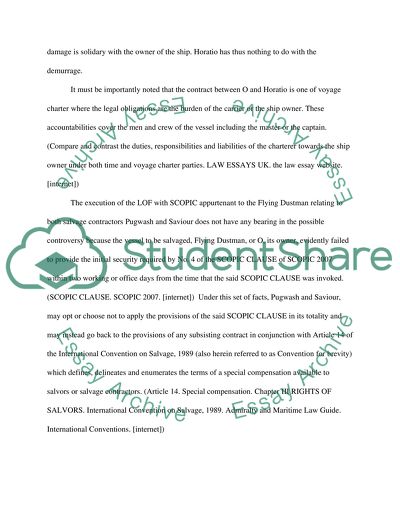Cite this document
(“Discussion On Non-cargo Claims Case Study Example | Topics and Well Written Essays - 1500 words”, n.d.)
Discussion On Non-cargo Claims Case Study Example | Topics and Well Written Essays - 1500 words. Retrieved from https://studentshare.org/law/1529692-shipping-law-essay
Discussion On Non-cargo Claims Case Study Example | Topics and Well Written Essays - 1500 words. Retrieved from https://studentshare.org/law/1529692-shipping-law-essay
(Discussion On Non-Cargo Claims Case Study Example | Topics and Well Written Essays - 1500 Words)
Discussion On Non-Cargo Claims Case Study Example | Topics and Well Written Essays - 1500 Words. https://studentshare.org/law/1529692-shipping-law-essay.
Discussion On Non-Cargo Claims Case Study Example | Topics and Well Written Essays - 1500 Words. https://studentshare.org/law/1529692-shipping-law-essay.
“Discussion On Non-Cargo Claims Case Study Example | Topics and Well Written Essays - 1500 Words”, n.d. https://studentshare.org/law/1529692-shipping-law-essay.


